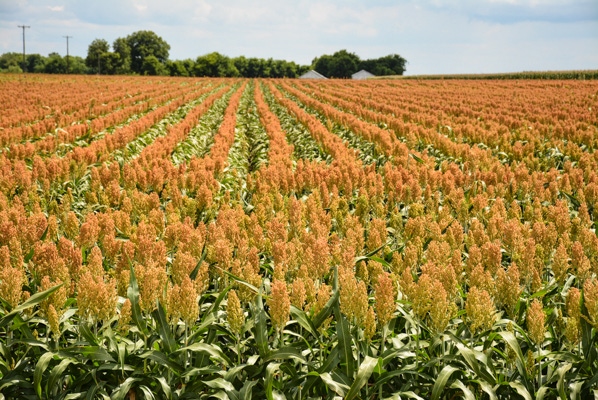March 6, 2020

The first quarter is always busy here at National Sorghum Producers, and this year is no exception.
The chaos caused by the Coronavirus is threatening to reduce the impact of the Phase 1 deal with China. The farm economy continues to deteriorate. We’ve had wins on the small refinery waiver front but ethanol demand growth is still slow. And if all that wasn’t enough, we’re in caucus and primary season, and that means the presidential election will be here before we know it.
In other words, there’s no shortage of problems to address this year!
Given these problems, many of the discussions at the 2020 Commodity Classic had a negative tone. My long-time readers know I don’t like being negative, so I want to highlight one conversation that was positive. A couple weeks before Commodity Classic, 21 farm organizations — including National Sorghum Producers — launched a new coalition tasked with highlighting the good work U.S. farmers are already doing with regard to sustainability and helping lead the search for ways to improve even more.
This development couldn’t have come at a better time. Not only is the sorghum industry in the midst of launching new initiatives dedicated to promoting the sustainability of our farmers, but national and even international sustainability discussions are heating up, as well. (Heating up is an understatement; red hot may be a better description.) More concerted efforts in research and messaging will both protect farmers’ interests in these discussions and allow U.S. agriculture to capitalize on a rapidly growing industry.
According to a recent CBS News article centered on JetBlue’s announcement it will begin offsetting its carbon footprint by supporting companies that plant trees or by buying carbon offsets, the global carbon offset market is now worth $500 million. On its own, this may or may not sound like a large number. But consider this: A decade ago, this market was worth $3.3 million. This change implies a 14,900% increase in just 10 years. That’s an astronomical growth rate for any industry. (I wish the sorghum industry was growing this quickly!)
With this growth and the arrival of companies like Indigo and Nori have come phone calls from farmers and others understandably skeptical about the market for carbon: Who’s paying for these offsets? How can they afford to pay for them? And how do they know how much carbon I’m sequestering?
These are great questions, and every farmer should ask them of someone looking to pay them for carbon offsets. While the answers are pretty complicated from a technical perspective, they’re pretty simple conceptually.
In a nutshell, companies like JetBlue and Microsoft have made massive promises about carbon reduction and even carbon neutrality to shareholders. These promises are the result of real demand from these shareholders for such promises, so companies like these are committed — and have been quietly committed now for over a decade in several cases. It’s up to you to decide whether you trust these promises, but there’s no doubt they’ve been made in spades.
And as for carbon sequestered in the soil, there’s a set amount of root mass required to support aboveground biomass in any crop, and while these amounts vary by crop, they’re largely agreed upon by the scientific community. Given the percent of root mass which breaks down into stable carbon enjoys similar consensus, the carbon sequestration potential for any crop and yield level is easily calculated.
Remember, agriculture is the only industry which sequesters carbon in the course of normal business operations. Accordingly, we must work hard to ensure U.S. farmers are compensated for this valuable service and look for even more opportunities to serve.
Duff is a strategic business director for National Sorghum Producers. He can be reached by email at [email protected] or find him on Twitter @sorghumduff.
Read more about:
CarbonAbout the Author(s)
You May Also Like






